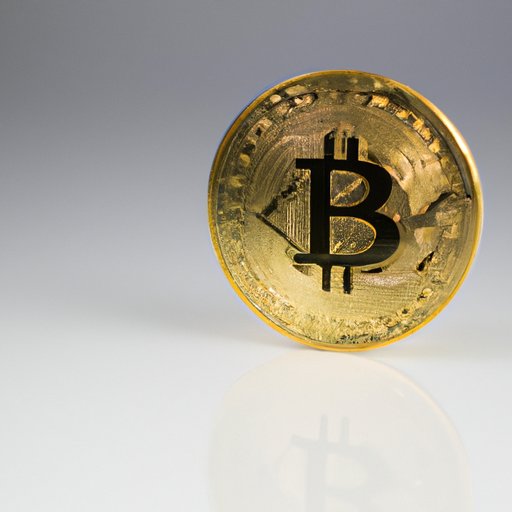
Introduction
Bitcoin is a digital currency that has been gaining popularity since its creation in 2009. While many people are familiar with Bitcoin, there is still some confusion surrounding it, particularly its status as real money. In this article, we will explore the pros and cons of Bitcoin as a legitimate form of currency in today’s economy.
Defining Bitcoin as a Digital Currency
Bitcoin was created by an unknown person or group using the pseudonym Satoshi Nakamoto. It is a decentralized digital currency, meaning it is not controlled by any government or financial institution.
At its core, Bitcoin is a peer-to-peer system that enables individuals to send and receive payments without the need for intermediaries. This is done through a public ledger called the blockchain, which keeps track of all Bitcoin transactions.
In essence, Bitcoin is a digital asset with value that can be used to purchase goods and services, just like traditional currency.
Pros and Cons of Investing in Bitcoin
Investing in Bitcoin has both potential benefits and risks. One of the main benefits is that Bitcoin is decentralized, meaning it is not subject to inflation or government intervention. This can make it a good hedge against inflation or economic instability.
However, Bitcoin is also a highly volatile asset, with prices fluctuating wildly from one day to the next. This makes it a risky investment for those who are not willing to take on significant risks.
Security Measures of Bitcoin Transactions
One of the key features of the Bitcoin system is the use of blockchain technology. In simple terms, the blockchain is a public ledger that records all Bitcoin transactions. It is maintained by a network of computers, and its open nature means that anyone can access and verify transactions on the network.
The blockchain is considered to be highly secure because it is tamper-proof and cannot be altered once a block has been added to the chain. This makes it an ideal solution for financial transactions that require high levels of security.
Comparing Bitcoin to Other Digital Currencies
Bitcoin is not the only digital currency out there. There are many others, including Litecoin, Ethereum, and Ripple, to name a few. However, Bitcoin is the most well-known and widely accepted.
Compared to other digital currencies, Bitcoin has some unique features that set it apart. For example, it has a limited supply, with only 21 million Bitcoins in existence. This gives it a sense of scarcity, which can drive up its value.
Regulatory and Legal Framework Surrounding Bitcoin
One of the concerns surrounding Bitcoin is its lack of regulation. Because it is not controlled by any government or financial institution, it is seen by some as a potential tool for money laundering or other illegal activities.
However, many countries around the world are starting to develop regulatory frameworks for digital currencies like Bitcoin. In the United States, for example, the IRS has issued guidance on how Bitcoin should be treated for tax purposes.
The Future Potential of Bitcoin as a Global Currency
Bitcoin has the potential to reshape the financial landscape. Because it is decentralized and operates outside of traditional financial systems, it has the potential to be used as a global currency that is not subject to the whims of governments or financial institutions.
However, there are still some hurdles to overcome before this can happen. The volatility of Bitcoin prices, as well as its lack of widespread adoption, are two factors that may hinder its future prospects.
Conclusion
In conclusion, Bitcoin is a digital currency that has the potential to be a legitimate form of money in today’s economy. While there are certainly risks associated with investing in Bitcoin, its unique features, such as its decentralization and scarcity, set it apart from other digital currencies.
As regulatory frameworks continue to be developed and the technology underlying Bitcoin continues to evolve, it will be interesting to see how this digital currency evolves and whether it becomes widely accepted as a form of money.





